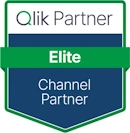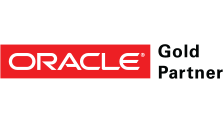Aggregate Industries, a company that produces construction materials, such as aggregates, asphalt, ready-mixed concrete and precast concrete products, is using QlikView business intelligence software to make its data more of an asset.
More About Aggregate Industries
Mike Gibbons, CIO at Aggregate Industries says he “took a bit of a punt on QlikTech’s business intelligence software when he felt the company had reached the end of the road with IBM Cognos. He cancelled his company’s Gartner subscription to fund a pilot of the technology. And while data discovery software, like QlikView is often welcomed into a company by enthusiasts and marketing, at this construction company IT has led the path to adoption.
We had a mature business intelligence platform that we had been putting together since about 2000. It was centred around Cognos. We had a lot of online analytical processing (OLAP) cubes from that, he recalls.
About three years ago we had two sets of [BI] issues, on the business and on the IT side. On the business side, a lot of our users struggled with the cubes. On the IT side, there was a heavy overhead of development. We had a lot of cubes, some of which were used heavily, others were used lightly, and cast by the wayside. And we had a group of very similar cubes, each representing a different version of the truth.
There was also an underlying cultural issue, which was not really understanding our data as an asset. It seemed like we were spending a lot of time collating data, but not analysing it.
It was also very heavily led by IT. We wanted to give a tool to the business so they could do the discovery by themselves.
And so he took a look at QlikView. “I could see a way to create more consistency, with fewer applications rather than this over-large family of cubes.
However, it turned out to be “quite difficult to get this over to the user base. It didn’t really strike a chord with the business.
So I took a punt on some licenses, and sorted out some apps for people we thought would become trailblazers. A financial performance app for one of the divisions took off. They liked the speed of the deployment, within a weekâ€.
Since then, the company has developed 30 or so QlikView applications across its finance, commerce, procurement, haulage and security functions. It is also looking to a next stage of reading social media data in support of its corporate social responsibility efforts.
In the quarrying industry we are very focused on corporate social responsibility, and we do invest a lot on the environmental side. So it’s very important to us what is being said on social media. We are looking to work with QlikView and Google Enterprise to get a better handle on that type of ‘big data’. That way we can act quickly either to correct the misinformed or deal with something that is an issue.
He expects this Google and QlikView project to be fully implemented by the end of this month.
Another strand in his business intelligence strategy is to deliver information in more real time. There tends to be a mentality that information is monthly. We’re trying to build applications where data is disclosed more frequently than that. QlikView can help with that.
The QlikView implementation cost £250,000, and will have returned the investment by the end of next year, he says. We knew it had a safe return, potentially a great return. We were constantly having to search for consultancy on the cubes and so on. We are much more self-sufficient now.






